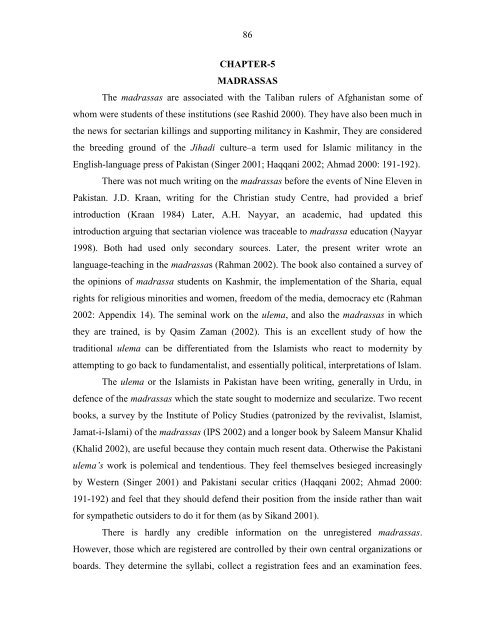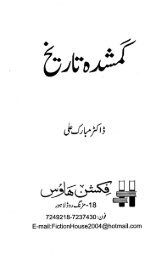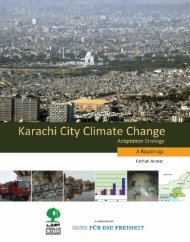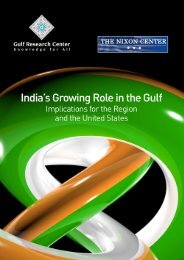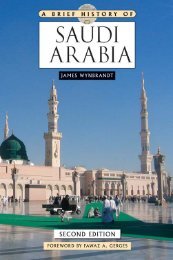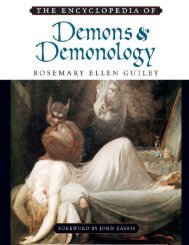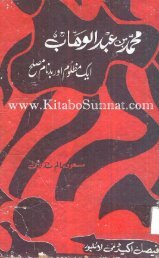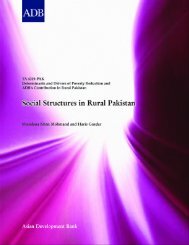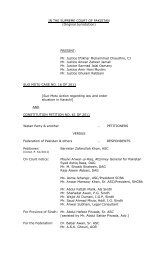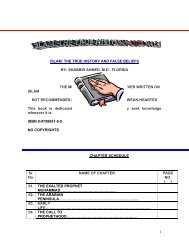DENIZENS OF ALIEN WORLDS
danizen1
danizen1
- No tags were found...
You also want an ePaper? Increase the reach of your titles
YUMPU automatically turns print PDFs into web optimized ePapers that Google loves.
86<br />
CHAPTER-5<br />
MADRASSAS<br />
The madrassas are associated with the Taliban rulers of Afghanistan some of<br />
whom were students of these institutions (see Rashid 2000). They have also been much in<br />
the news for sectarian killings and supporting militancy in Kashmir, They are considered<br />
the breeding ground of the Jihadi culture–a term used for Islamic militancy in the<br />
English-language press of Pakistan (Singer 2001; Haqqani 2002; Ahmad 2000: 191-192).<br />
There was not much writing on the madrassas before the events of Nine Eleven in<br />
Pakistan. J.D. Kraan, writing for the Christian study Centre, had provided a brief<br />
introduction (Kraan 1984) Later, A.H. Nayyar, an academic, had updated this<br />
introduction arguing that sectarian violence was traceable to madrassa education (Nayyar<br />
1998). Both had used only secondary sources. Later, the present writer wrote an<br />
language-teaching in the madrassas (Rahman 2002). The book also contained a survey of<br />
the opinions of madrassa students on Kashmir, the implementation of the Sharia, equal<br />
rights for religious minorities and women, freedom of the media, democracy etc (Rahman<br />
2002: Appendix 14). The seminal work on the ulema, and also the madrassas in which<br />
they are trained, is by Qasim Zaman (2002). This is an excellent study of how the<br />
traditional ulema can be differentiated from the Islamists who react to modernity by<br />
attempting to go back to fundamentalist, and essentially political, interpretations of Islam.<br />
The ulema or the Islamists in Pakistan have been writing, generally in Urdu, in<br />
defence of the madrassas which the state sought to modernize and secularize. Two recent<br />
books, a survey by the Institute of Policy Studies (patronized by the revivalist, Islamist,<br />
Jamat-i-Islami) of the madrassas (IPS 2002) and a longer book by Saleem Mansur Khalid<br />
(Khalid 2002), are useful because they contain much resent data. Otherwise the Pakistani<br />
ulema’s work is polemical and tendentious. They feel themselves besieged increasingly<br />
by Western (Singer 2001) and Pakistani secular critics (Haqqani 2002; Ahmad 2000:<br />
191-192) and feel that they should defend their position from the inside rather than wait<br />
for sympathetic outsiders to do it for them (as by Sikand 2001).<br />
There is hardly any credible information on the unregistered madrassas.<br />
However, those which are registered are controlled by their own central organizations or<br />
boards. They determine the syllabi, collect a registration fees and an examination fees.


